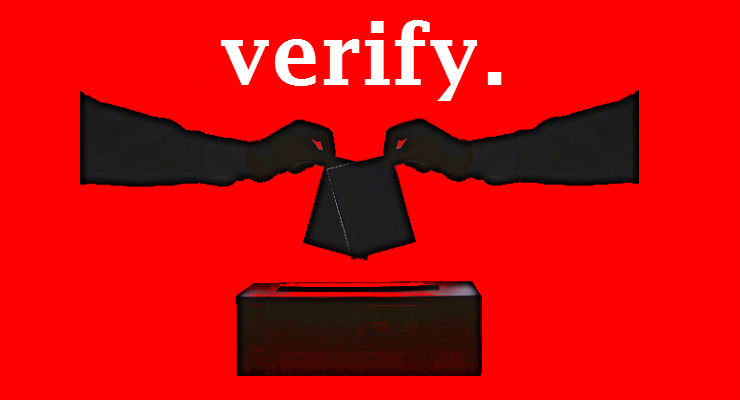
From VOA – ENGLISH
As demands for a manual voter recount surge amid claims of election fraud in the Iraqi general elections, the country’s Independent High Electoral Commission (IHEC) is concerned a ballot-by-ballot recount could portray the newly introduced electronic system as a failure, one member says.
During a telephone interview with Voice of America, Saeed Kakei, a member of the IHEC, said his request for a manual recount was rejected by other members of the election commission who “feared” that a recount could possibly show the failure of the machines.
“I told them we should work with transparency. What is the fear for?” Kakei told VOA. “I proposed that they manually recount 25 percent of the ballot boxes, or at least 5 percent, but they refused to do so.”
The IHEC is headed by a nine-member board and has complete authority over holding elections and examining electoral complaints.
Other members of the commission could not be reached for comment.
First vote since IS emergence
Iraq held elections to pick a new parliament and government May 12 for the first since the emergence of the Islamic State in parts of the country in 2014.
The introduction of electronic counting machines for the first time by the IHEC was initially hailed as an attempt to prevent voter fraud while also expediting election results.
But the announcement of the results this week led to strong criticismfrom several political blocs who claimedthe electronic counting machines had been manipulated in favor of their political opponents.
IHEC, however, defended the electronic system as accurate and transparent. A public statement from the election body Friday rejected conducting a manual recount, saying the electronic tally was done according to the country’s electoral laws.
“The election commission, in compliance with the law and the constitution, rejects all forms of pressure which are exercised by some affected by the results,” the statement said.
WATCH:Iraq for First Time Uses Electronic Counting in Elections
In a separate statement Wednesday, the commission said Kakei and his family had received death threats from “one of the political parties affected by the election results.”
Proponents of manual recount
Those in favor of a manual recount include Iraqi Prime Minister Haider al-Abadi, Iraqi Vice President Ayad Allawi, the Conquest Allianceand six Kurdish political parties from the Kurdistan Region.
Jan Kubis, the U.N. special representative to Iraq, on Thursday called on IHEC to promptly investigate the complaints, particularly in the province of Kirkuk, which is disputed between the Iraqi central government and the Kurdistan Region.
“It is important that these are undertaken in full transparency, witnessed by stakeholders, to strengthen the confidence in the process. The U.N. is ready to provide assistance, if requested,” Kubis said.
Kakei told VOA that most of the complaints concerned the possible compromise of Polling Station Count Optical Scanners (PCOS) and Central Count Optical Scanners (CCOS), provided to Iraq by the South Korean firm Miru Systems. The firm received $135 million as part of a contract signed in April 2017.
Fingerprint voter identification technology purchased from the Spanish company Indra Sistamas has resulted in no such complaints, he charged.
“If the electronic results are inaccurate, we should admit to the people that we made a mistake,” he said, adding that Iraqi’s contract with Miru Systems holds the company accountable if malfunction or interference was verified.
Under the new system, Iraqi voters inserted ID cards into a machine that linked them to individual ballot boxes using machine-readable codes. Voters used a rubber stamp to mark their chosen candidates on the ballot papers before putting them into a scanner for electronic sorting and counting.
Parliamentary session canceled
Whether the machines have been tampered with will remain controversial in the coming weeks, as winning parties continue their efforts to play a role in forming the next Iraqi government.
An Iraqi parliament emergency session on the fraud allegations was set for Saturday but had to be called off for the lack of a quorum; at least165 of the 328 members were required to be present.
Meanwhile, the bitter dispute among the members of Iraq’s electoral body will most likely increase questions about the performance and independence of the commission.
Saad al-Hadithi, the spokesperson for Abadi, said Thursday that the prime minister had referred the electoral body to the government’s Integrity Commission even before the elections were held for “violating some procedures.”
Leave a Reply